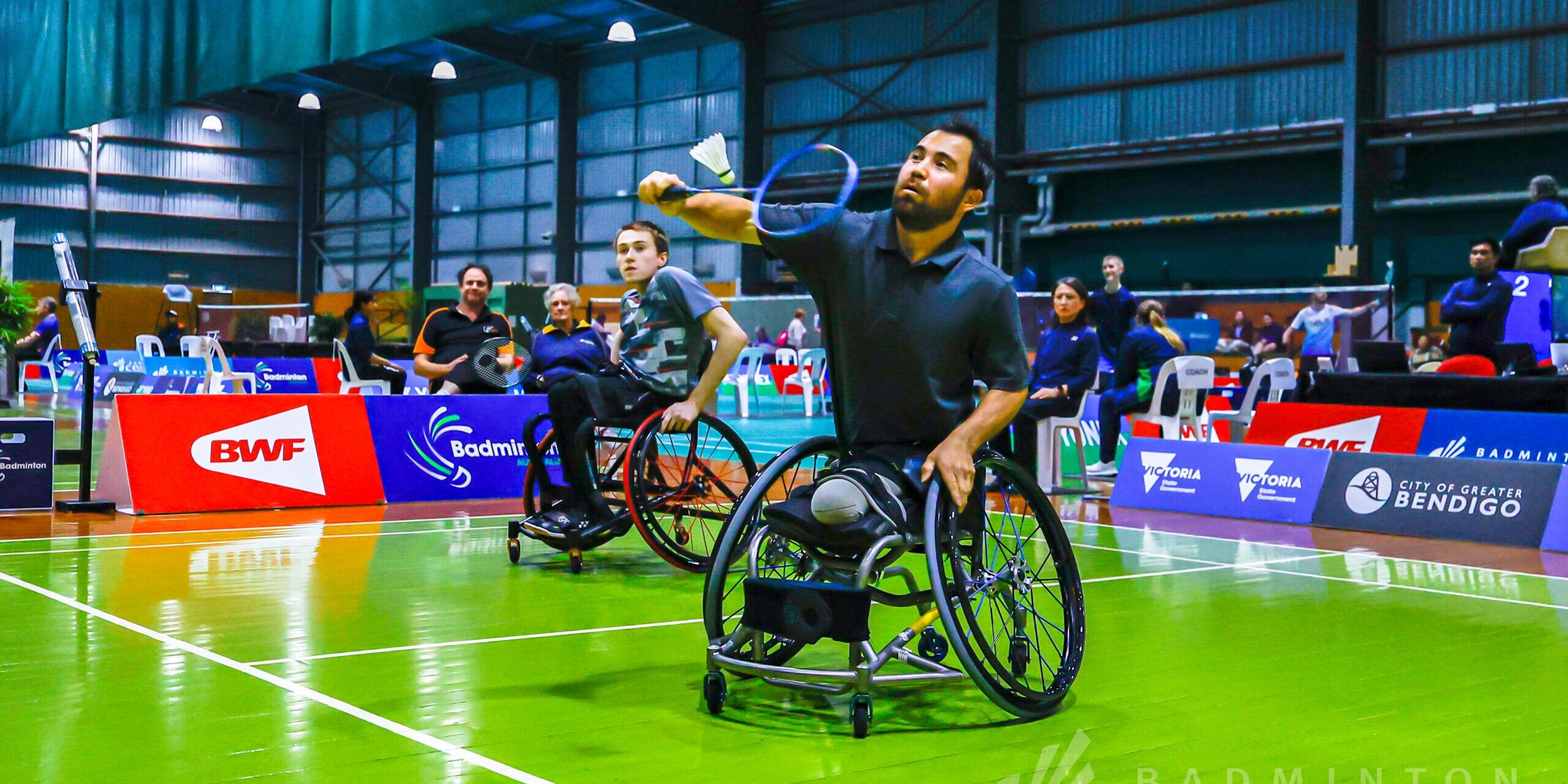Qambar Ali Akhteyari doesn’t play for the podium. He plays because he can.
At last week’s YONEX Australian Para Badminton Championship, Akhteyari placed second in the MS WH1 category. But what stood out wasn’t the result, it was the way he moved through the match: focused, fluid, and smiling.
That smile has become familiar to those who follow Para badminton in Australia. It’s not a celebration or a tactic. It’s a signal that he’s exactly where he wants to be.
“For me, it’s more than winning or losing,” he said. “It’s all about playing. When I’m on the court, I get to play. And that is a joy for me — just to be there”
Born in Afghanistan, Akhteyari came to Australia at 17, sponsored by his eldest brother who had arrived years earlier as a refugee. The transition was abrupt. He left behind friends, extended family, and the only home he’d known. Sixteen years later, he still carries that shift with him.
“I always like to remember where I came from,” he said. “It helps me appreciate what I have now — and reminds me to grow, and hopefully help others someday.”
Badminton wasn’t part of his life until about five years ago. Friends from tennis introduced him to the sport, and he quickly found himself drawn in, not just by the game, but by the people around it. The Para badminton community offered something rare: a space where competition and connection coexisted.
“The community was incredible,” he said. “It really helped my health and wellbeing.”
International tournaments followed. At his first overseas event, Akhteyari was struck by the diversity of athletes, each with a different background, each navigating their own challenges. He felt seen. “It was inspiring,” he said. “Nowhere else could I get that experience.”
He’s now competed in three Oceania Championships. His game has improved, but so has his sense of self. Badminton gave him structure, confidence, and a way to measure growth beyond rankings.
“Sometimes I’ve been surprised,” he said. “‘Wow, I can do that!’ It’s helped me relate better to myself and to others.”
For years, Akhteyari wrestled with guilt over leaving Afghanistan. “I knew it wasn’t in my control,” he said. “But I couldn’t accept it. I was so young.”
The sport helped him process that grief. It gave him a way to move forward — not by forgetting, but by building something new. Today, he sees badminton as more than a personal outlet. It’s a platform.
“I want to appreciate the life I have,” he said. “Every day, I want to live in a better way — not only for myself, but for my family, for my community, for my society.”
That’s what the smile means. It’s not about joy alone. It’s about presence, purpose, and the quiet strength of someone who knows exactly why he’s here.






